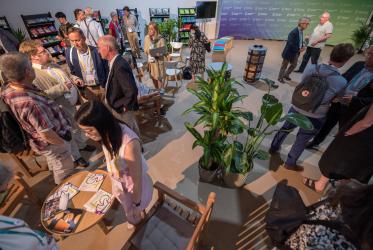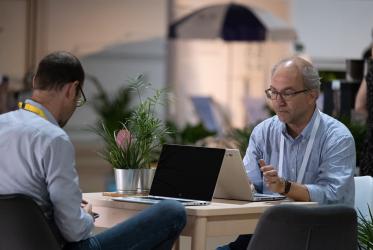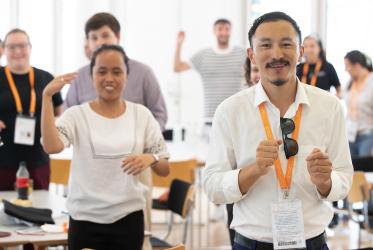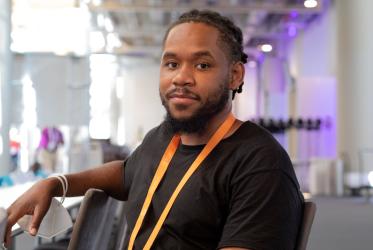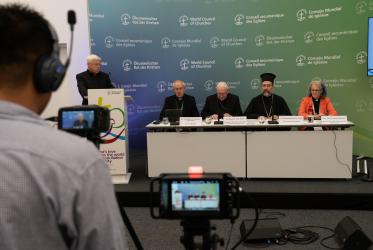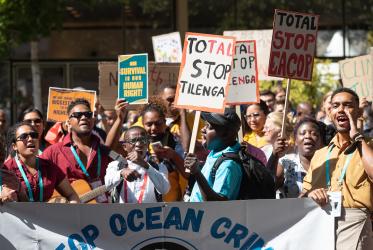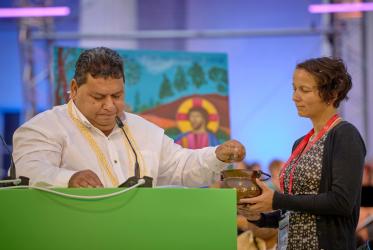Displaying 141 - 160 of 1438
15 September 2022
At assembly and beyond, WCC publications inspire and move
14 September 2022
Christ’s Love (Re)moves Borders – GETI 2022 in images
13 September 2022
Reflections from GETI underscore friendship coupled with knowledge
13 September 2022
Aspiring therapist opens his mind to different beliefs
13 September 2022
From hostility to hospitality: Closing prayers at Karlsruhe
09 September 2022
Dear future steward
08 September 2022
Ukraine: Responding to humanitarian need
08 September 2022
The earth is the LORD's… and the Lord is claiming it back
07 September 2022
Multireligiöser Einsatz für das Klima: Nicht wirklich mehr viel Zeit
07 September 2022
Bibelstudien bieten Wege zu lernen, wie Christus uns bewegt
07 September 2022
Indigene Frauen kämpfen um Identität in Asien und darüber hinaus
07 September 2022
Bible studies bring ways to learn how Christ’s love moves us
06 September 2022


